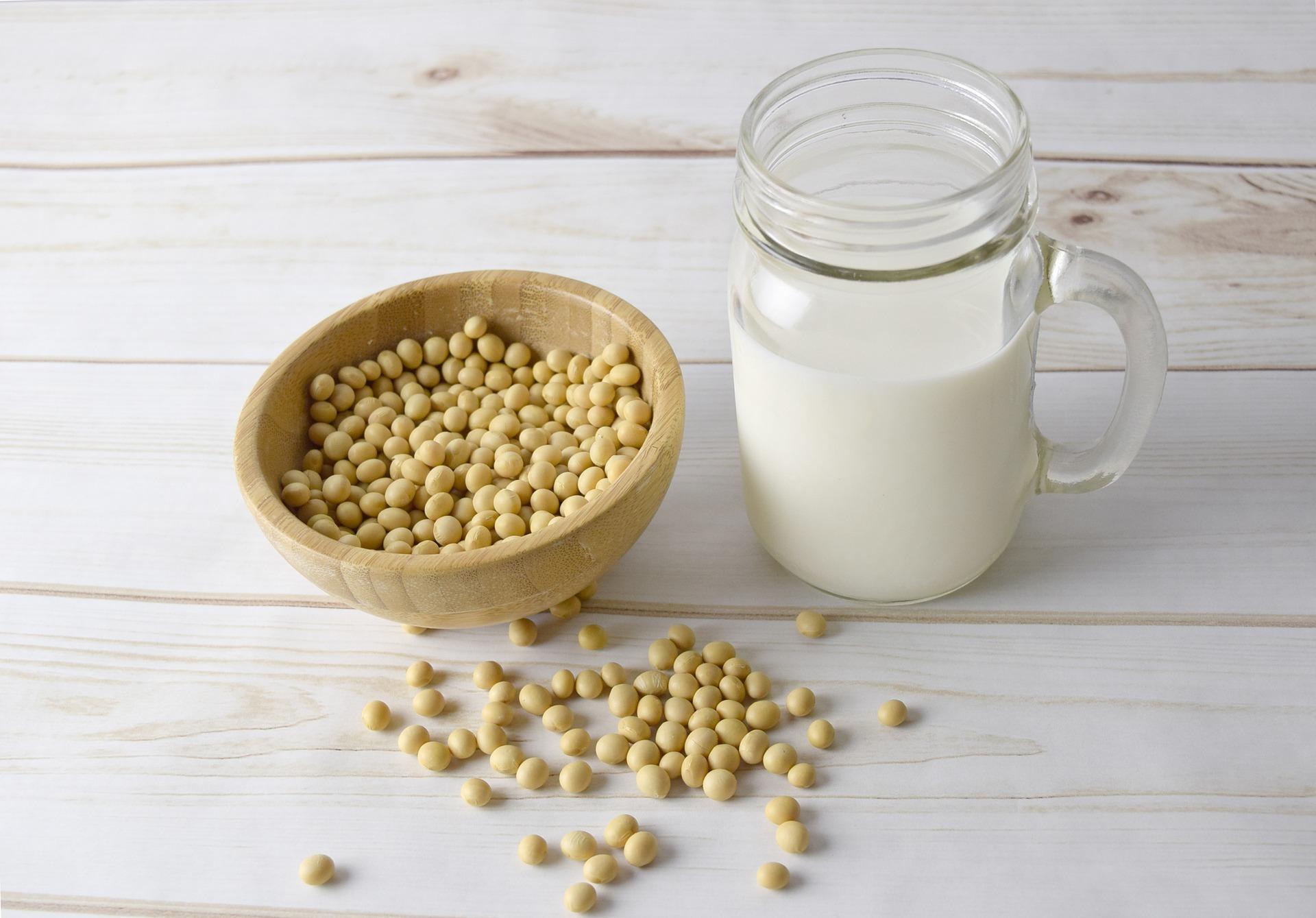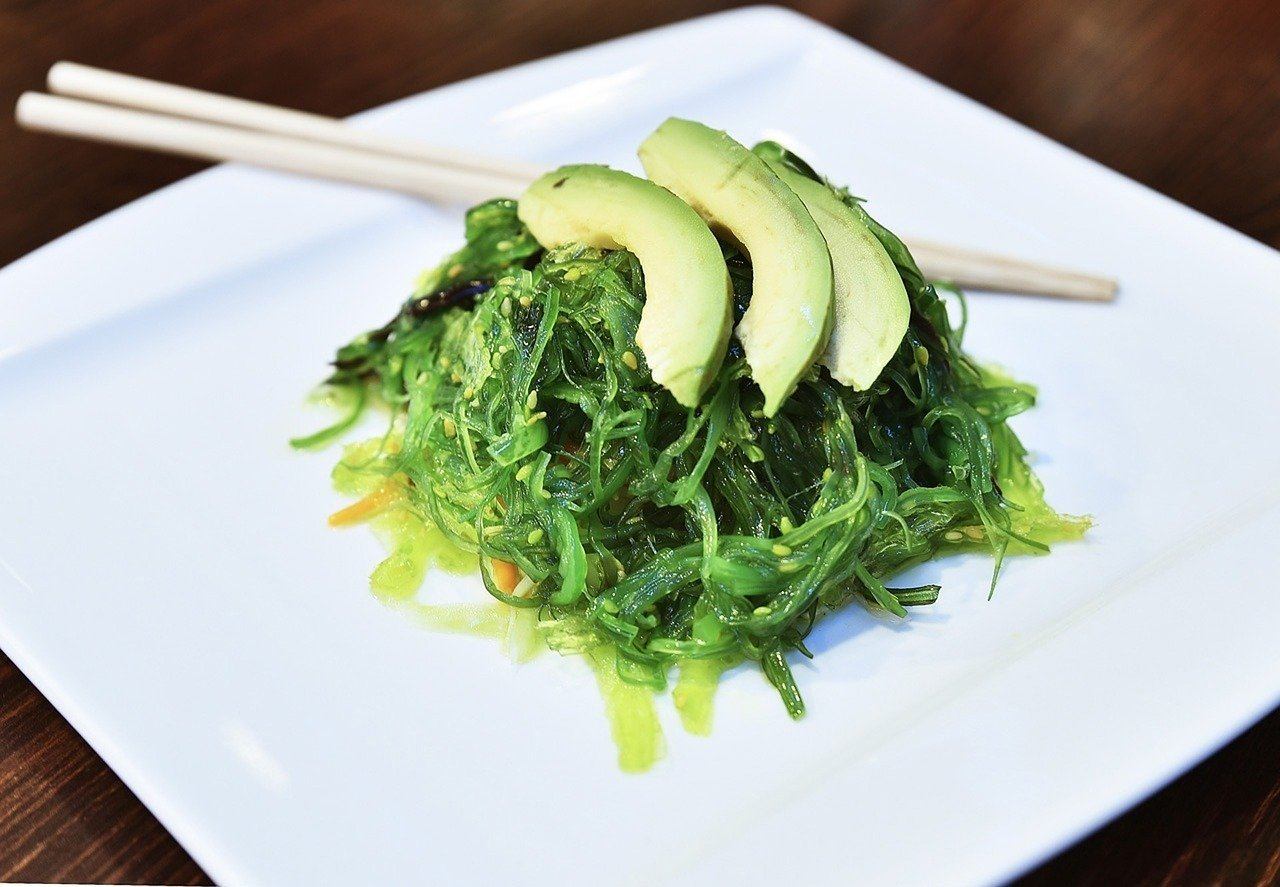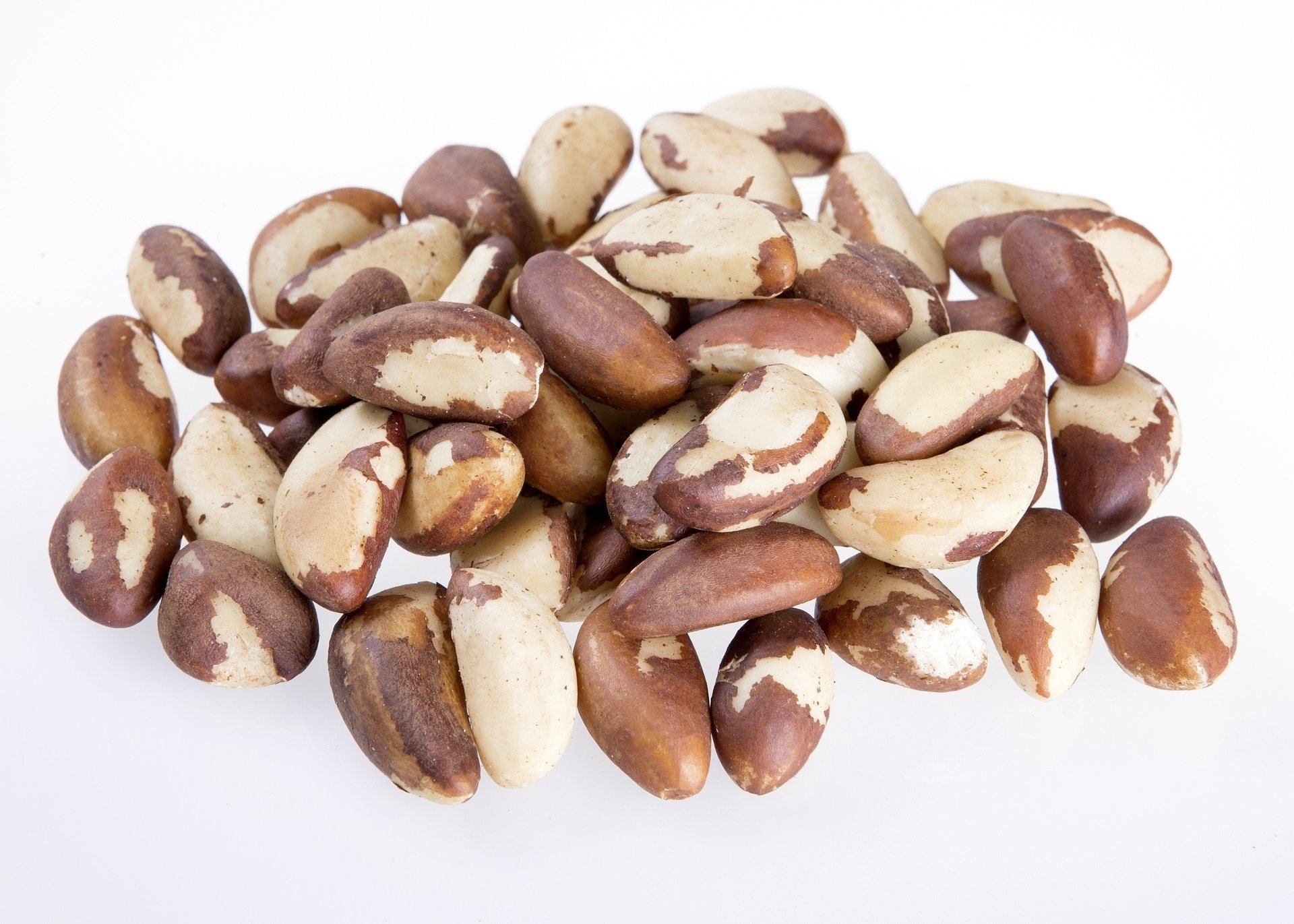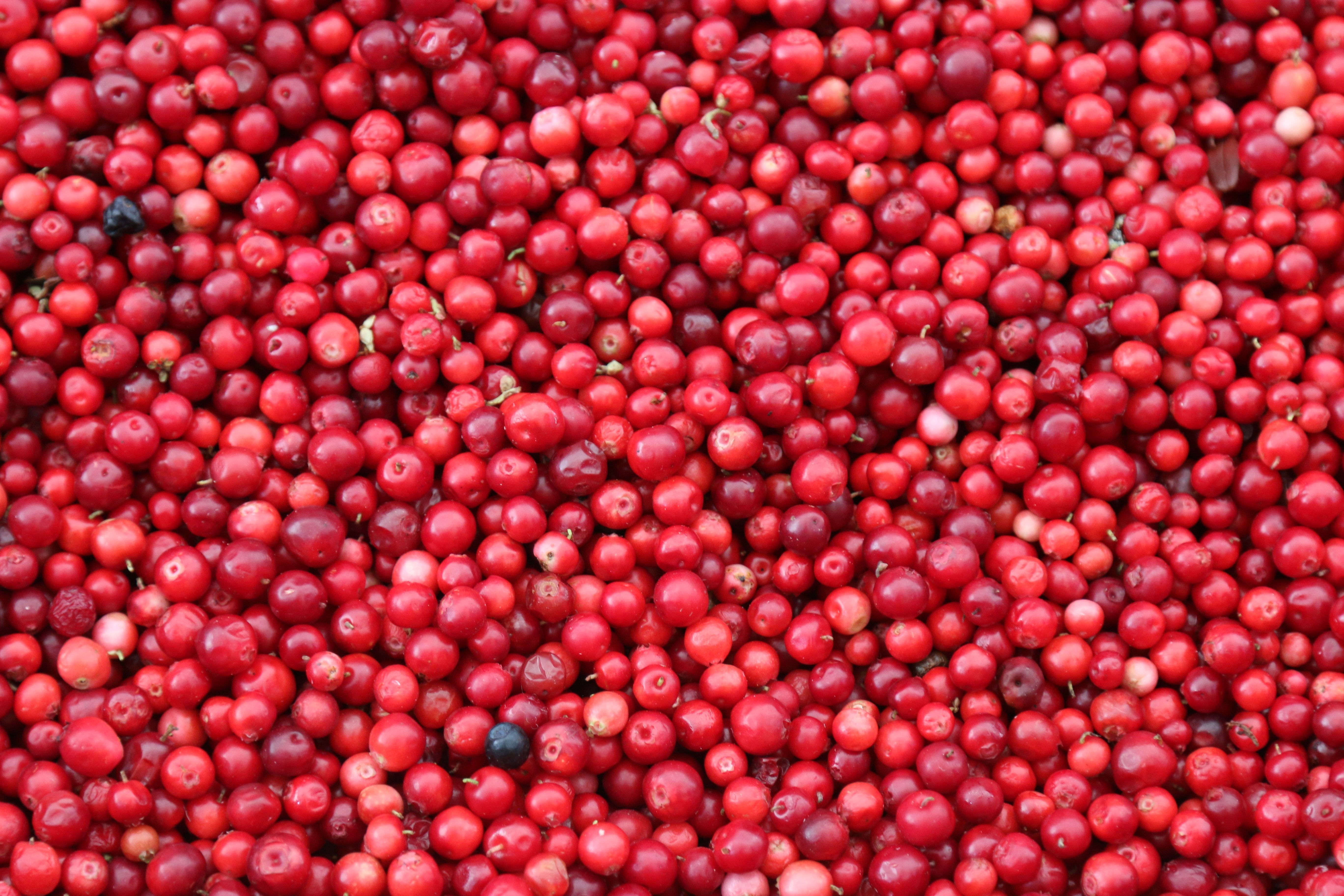Natural Thyroid Health
The thyroid is a butterfly-shaped gland positioned at the front of the neck, just below the Adam's apple. Despite its small size, it has a big job. A healthy functioning thyroid finely balances the entire body's metabolism, as well as mood, sleep and fertility. But if there is any condition affecting the thyroid, hormones are thrown out of balance and it can be difficult (sometimes seemingly impossible) to bring them back into equilibrium. Weight issues, mood fluctuations, fertility problems, hair loss and more – thyroid issues can be severe, frustrating, and often misdiagnosed.
But there is good news.
Whether your thyroid is healthy, under-active, or over-active, there are dietary changes and lifestyle alterations you can make to support the balanced production and activation of thyroid hormones and bring things back into balance. Supplementation may be required, but see a qualified naturopath or nutritionist for personalised advice.
Thyroid Hormones: T3 is Active & T4 is Inactive
The thyroid gland produces two major hormones: T3 and T4 (“T” stands for thyroid; the numbers designate how many iodine molecules the hormones carry). T4 is produced by the thyroid gland first and is then converted to the more active hormone, T3, by trading off one of its iodine molecules. This conversion can occur in the thyroid gland, but more occurs more often in other areas of the body like the liver, gut, muscles, and brain.
Active T3 hormones then work on every cell in the body. It controls how fast and hard the heart pumps, influences the speed of respiration, controls how much blood can pass through blood vessels, increases the effects of stress hormones, and increases the metabolism of carbohydrates and proteins. It acts directly on the lining of the uterus during the menstrual cycle, is essential for brain development, affects DNA expression, and controls fertility. T3 also directly impacts the “basal metabolic rate” – this is the rate of how much energy the body uses at rest, which has a major impact on not only weight loss and weight gain, but also mood, temperature sleep quality, resistance to stress, bone strength, and more.
Key Roles of Thyroid Hormones:
- Regulate metabolic rate
- Set the resting heart rate and influence blood pressure
- Regulate activity in the nervous system
- Balance fat metabolism and influence burning vs. storing body fat
- Control bone health and calcium metabolism
- Balance tolerance to temperature changes
- Regulate carbohydrate and protein metabolism throughout the body
A healthy thyroid keeps the metabolism healthy, stabilizes your moods, gives you good quality sleep and peak fertility. With such strong influence on all areas of the body, you would think that it'd be obvious when something is wrong with the thyroid gland or its hormones – but the symptoms can be vague:

Hyperthyroid (Overactive Thyroid)
In certain conditions, the thyroid can become overactive and produce too much thyroid hormone (T3), resulting in an ultra-fast metabolism.
Symptoms include:
- Puffy eyes
- Irregular menstrual periods
- Difficulty gaining weight or maintaining healthy weight
- Frequent infections
- Excessive hunger
- Sweating
- Iritability
- Hair loss
- Anxiety
The major health risk from this condition is from too much bone turn-over and cardiovascular damage from a racing heart beat. Sometimes hyperthyroid conditions can cause damage to the thyroid gland itself, and develop into hypothyroid conditions.
Hyperthyroid states can be caused by nutrient deficiencies or autoimmune conditions including Graves disease.
Hypothyroid (Under-active Thyroid)
In hypothyroidism, the under-active thyroid struggles to produce and release enough active thyroid hormone (T3) to meet the body's needs. This affects all cells in the body and causes the basal metabolic rate to slow down.
Symptoms include:- Unexplained weight gain- Sensitivity to the cold- Hair loss- Depression- Muscle pain- Fatigue- Nails that break easily- Constipation- Erectile dysfunction or low libido
Hypothyroidism can be caused by nutrient deficiencies (e.g. iodine deficiency), or autoimmune conditions including Hashimoto's thyroiditis, or as a long-term result of hyperthyroidism.
The Autoimmune Issue
Both hyper- and hypo-thyroid conditions can be caused by autoimmune diseases – and both may be caused by something else. Autoimmune conditions occur when the body mounts an attack on its own tissues. In the case of Hashimoto's and Graves' disease, the thyroid gland is damaged by the immune system. When the tissues of the thyroid gland are destroyed, they disfunction and either release too much thyroid hormone (Graves' disease) or too little (Hashimoto's disease).

Autoimmune conditions require the same therapies as other causes of thyroid disfunction, but with extra support to regulate the immune system.
Thyroid, Trauma & PTSDAny type of stress has an impact on thyroid hormones, but when stress hormones like cortisol and epinephrine are chronically present, the impact can be so great that it results in a clinical thyroid condition. Doubling this risk, people with autoimmune conditions in their family often experience the onset of Hashimoto's hypothyroid or Grave's disease following a traumatic experience or a diagnosis of PTSD. Autoimmune conditions are particularly sensitive to trauma, and any kind of stress can exacerbate them. Tension relief, stress management, and even counseling can form the foundation of successful, natural thyroid treatment.
Whether your thyroid is healthy, under-active, or over-active, there are things you can do to manage the condition and support your thyroid hormone levels. Nutrients and herbs can support the balanced production, secretion, and activation of thyroid hormones:
Natural Thyroid Health: Diet and Nutrients
1) Cut the Caffeine to Balance Hormones & Absorb Medications
Stress hormones such as epinephrine, norepinephrine and cortisol are fast-acting and work quickly to throw the thyroid out of balance. It's not just stress and trauma that cause these hormones to spike in the blood – the most common cause is caffeine. Drinking tea, coffee, and caffeinated soda interferes with the conversion of T4(inactive thyroid hormone) to T3 (active thyroid hormone), and can cause both hyper- and hypo-thyroid conditions to worsen.

If you are on a prescription medication for a thyroid condition, it is even more important to be careful with caffeine. For example, taking thyroxine (a pharmaceutical thyroid hormone replacement) within 60 minutes of drinking a cup of coffee will significantly reduce how much of the medication your body will absorb1, essentially delivering a much lower dose. Be sure to space caffeine and medications by at least an hour – or even better, swap the coffee for an uncaffeinated herbal tea!
Caffeine also affects the absorption and metabolism of natural therapies. It causes the body to excrete thyroid nutrients like iodine, and herbal constituents that you may be taking to improve your thyroid health.
In cases of hyperthyroid, caffeine can exacerbate the symptoms – it can make a racing heartbeat, anxiety, jitters and calcium issues much worse.
2) Ditch Goitrogens to Absorb Iodine
Goitrogens are foods that can interfere with the production of thyroid hormones by blocking the uptake of iodine into the thyroid gland2.
Goitrogens include:
- Tofu
- Soy milk
- Soy bean oil
- Pine nuts
- Strawberries
- Cruciferous vegetables (e.g. Broccoli, cabbage, cauliflower)

Generally speaking, cooking these foods decreases their goitrogenic effects – so be sure to at least lightly steam all cruciferous vegetables like broccoli, cabbage, and cauliflower and never eat them raw. The exception to this is tofu, soy milk, and soybean oil – these soy products never lose their goitrogenic effects, so it's best to avoid them completely.
Including some goitrogens in an iodine-rich diet generally has little effect on the amount of thyroid hormone produced in people who have perfectly functioning thyroid. But if you are suffering from symptoms of hypothyroidism and suspect that your thyroid may be involved, removing goitrogens from the diet may help to support T3 hormone production.
CAUTION: Removing groups of foods from your diet runs the risk of nutritional deficiencies, which may ultimately harm thyroid health. For personalised advice, see a qualified nutritionist or naturopath who specialises in food as medicine.
3) Sea Vegetables for Thyroid Ingredients
Iodine is a key ingredient in thyroid hormone production. A deficiency in iodine will impair thyroid hormone production and can result hypothyroidism and even a goitre3. It's very common for people with thyroid conditions to have an insufficient intake of this powerful mineral. The most bioavailable source of iodine is sea vegetables such as kelp, bladderwrack, dulse and wakame 4.

Iodine supplements may deliver more concentrated doses, but it can be very easy to over-do it and run the risk of serious toxicity. High amounts of supplemental iodine can throw the thyroid into a hyperthyroid state – which can then swing back to a more permanent low-function hypothyroid state. In iodine's natural form in sea vegetables, the body may be able to regulate how much iodine is absorbed to a larger degree, making this a safer and still very effective option for supporting thyroid hormone production.
Key Nutrients for Thyroid Health:
1) Zinc to Convert Thyroid Hormones
Zinc is a co-factor in the conversion of hormones T4 to T3. Without enough zinc, the thyroid may make plenty of inactive T4 but be unable to metabolise it into active T3. Zinc is also needed to keep the tissues of the thyroid gland healthy. Increasing zinc-rich foods in your diet is a good first step before trying supplementation – try incorporating spinach, nuts and seeds into your menu. Women who are or were recently pregnant, and people who regularly drink alcohol are most at risk of having low levels of zinc and may require supplementation.

CAUTION: If you are taking thyroxine medication for a thyroid condition, but sure to separate taking the medication and supplements by at least 2 hours.
2) Selenium to Protect Against Immune Attacks
Like zinc, selenium is essential for the conversion of inactive thyroid hormone T4 into active T3. It also boosts how much iodine is absorbed by the thyroid5.

As a powerful antioxidant, selenium protects the thyroid against oxidative damage and immune system attack. Selenium supplementation may be an appropriate therapy for people with autoimmune conditions that effect the thyroid6, but even boosting levels from a healthy diet will help support thyroid activity and the conversion of T4 to T3.
Aim for six brazil nuts per day – they are packed with selenium. While it is available as a supplement, selenium another nutrient to be cautious of – high levels are toxic and even deadly. Stick to 200 – 400 mcg (that's micrograms, not milligrams) per day and speak to a qualified nutritionist for personalised advice.
3) Vitamin A to Synthesize Hormones
Adequate levels of vitamin A are required for proper regulation of thyroid hormones7. Vitamin A is needed for the synthesis of thyroid hormones and likewise, thyroid hormones are needed in the conversion of beta-carotene into vitamin A. This fat-soluble nutrient has major roles in the immune system too, and could also regulate autoimmune attacks that are causing thyroiditis.

Vitamin A is needed for the synthesis of thyroid hormones and likewise, thyroid hormones are needed in the conversion of beta-carotene into vitamin A. This fat-soluble nutrient has major roles in the immune system too, and could also regulate autoimmune attacks that are causing thyroiditis.
A study in 2012 showed that supplementation with pro-vitamin A beta-carotene may relieve the severity and frequent of symptoms for people with hypothyroid conditions by regulating the amount of hormones produced8. It may also have a protective effect against the development of hypothyroid conditions in those who are genetically predisposed9.
Carotenoids from colourful fruits and vegetables are great precursors to vitamin A, and are also potent antioxidants with effects on the immune system.
4) Iron to Catalyse Enzymatic Reactions
A reduction in thyroid hormones is a little-known effect of iron-deficiency. Anaemia from low levels of iron already creates symptoms of fatigue, and adding a hypothyroid state to that can make symptoms significantly worse. Iron is used by the enzymes that move iodine molecules around the thyroid, and as a chemical catalyst at the sites where thyroid hormones are used throughout the body. For these actions, iron must be in its “haem-iron” form. A vegetarian diet is rich in plant-based sources of iron such as: spinach, parsley, lentils, silverbeet, tempeh, and quinoa – but these forms are “non-haem”. Vitamin C is needed to convert “non-haem” into “haem” iron, so make sure you're eating plenty of fresh fruits and vegetables to support thyroid function.

5) Tyrosine as Backbone of Thyroid Hormones
Tyrosine is an amino acid, or a building block of proteins. It forms the backbone of all thyroid hormones. Generally speaking, eating a protein-rich diet should provide plenty of tyrosine. However, supplementation may assist in boosting thyroid production in people with low thyroid function.

CAUTION: Tyrosine supplementation is generally not necessary in people with hyperthyroid conditions and could contribute to extra anxiety, high blood pressure, headaches and digestive issues.
Herbal Support for Thyroid Health
1) Ashwagandha (Withania somnifera) to Adapt Regulate Thyroid Activity
As an adaptogenic herb, ashwagandha can sort of adapt the thyroid – it can help to rebalance both overactive and under-active thyroid function to a normal level. It can even help in cases where a clinical diagnosis can't be made because the thyroid is just slightly out of balance, but still causing distressing symptoms.

A double-blind, randomized placebo-controlled trial in 2017 looked at the effects of ashwagandha in patients that showed signs of low thyroid activity, but who didn't have a diagnosis of hypothyroidism. Taking 600mg of ashwagandha per day was shown to significantly improved thyroid function and relieve symptoms10.
CAUTION: Speak to a qualified herbalist before using ashwagandha in hyperthyroid conditions, as most of the available evidence concerns under-active thyroid conditions.
2) Schisandra Chinensis to Resist Stress and Autoimmune Attacks
Schisandra is another powerful adaptogen. It can improve both mental and physiological performance when under any kind of stress – a perfect support for both hyper- and hypo-thyroid states11. It is particularly helpful in cases of thyroid disease caused by autoimmune conditions, as it can help the immune system to down-regulate autoimmune attacks. Schisandra contains lignans that are powerful anti-oxidants and protect cells against oxidative stress – it may even reduce the risk of thyroid cancer12.
Diet changes, key nutrients, and some herbal medicines can support your thyroid, whether it is under-active or over-active, clinically unwell or just functioning sub-optimally. While herbs can help modulate thyroid function, the fundamentals have to be in place first – ditch caffeine, steam your cruciferous vegetables, eat plenty of sea vegetables. and focus on key nutrients like zinc and selenium.
References:
- Benvenga, S., et al. (2008) Altered intestinal absorption of L-thyroxine caused by coffee. Thyroid, 18:3, 293 – 301. https://www.ncbi.nlm.nih.gov/pubmed/18341376?dopt=Citation
- Farhangi, M. A., et al. (2012) The effect of vitamin A supplementation on thyroid function in premenopausal women. J Am Coll Nutr., 31:4, 268 – 274. https://www.ncbi.nlm.nih.gov/pubmed/23378454
- Higdon, J. (2003) An evidence-based approach to vitamins and minerals. Iodine. New York: Thieme, 130-7. http://iucat.iu.edu/catalog/12503236
- Zava, T. T. & Zava, D. T. (2011) Assessment of Japanese iodine intake based on seaweed consumption in Japan: A literature-based analysis. Thyroid Res., 4, 14. https://www.ncbi.nlm.nih.gov/pmc/articles/PMC3204293/
- Higdon, J. (2003) An evidence-based approach to vitamins and minerals. Iodine. New York: Thieme, 130-7. http://iucat.iu.edu/catalog/12503236
- Wichman, J., Winther, K. H., Bonnema, S. & Hegedus, L. (2016) Selenium Supplementation Significantly Reduces Thyroid Autoantibody Levels in Patients with Chronic Autoimmune Thyroiditis: A Systematic Review and Meta-Analysis. Thyroid. https://www.ncbi.nlm.nih.gov/pubmed/27702392
- Farhangi, M. A., et al. (2012) The effect of vitamin A supplementation on thyroid function in premenopausal women. J Am Coll Nutr., 31:4, 268 – 274. https://www.ncbi.nlm.nih.gov/pubmed/23378454
- Farhangi, M. A., et al. (2012) The effect of vitamin A supplementation on thyroid function in premenopausal women. J Am Coll Nutr., 31:4, 268 – 274. https://www.ncbi.nlm.nih.gov/pubmed/23378454
- Farhangi, M. A., et al. (2012) The effect of vitamin A supplementation on thyroid function in premenopausal women. J Am Coll Nutr., 31:4, 268 – 274. https://www.ncbi.nlm.nih.gov/pubmed/23378454
- Sharma, A. K., et al. (2017) Efficacy and Safety of Ashwagandha Root Extract in Subclinical Hypothyroid Patients: A Double-Blind, Randomized Placebo-Controlled Trial. J Altern Complement Med., 24:3, 243 – 248. https://www.ncbi.nlm.nih.gov/pubmed/28829155
- Panossian, A., et al. (2007) The Adaptogens Rhodiola and Schizandra Modify the Response to Immobilization Stress in Rabbits by Suppressing the Increase of Phosphorylated Stress-activated Protein Kinase, Nitric Oxide and Cortisol. Drug Targets Insights., 2. https://www.ncbi.nlm.nih.gov/pmc/articles/PMC3155223/
- Qun, E., et al. (2015) Protection of seven dibenzocyclooctadiene lignans from Schisandra chinensisagainst serum and glucose deprivationinjuryin SH-SY5Y cell. Cell Biology International, 39. https://www.ncbi.nlm.nih.gov/pubmed/26289388
